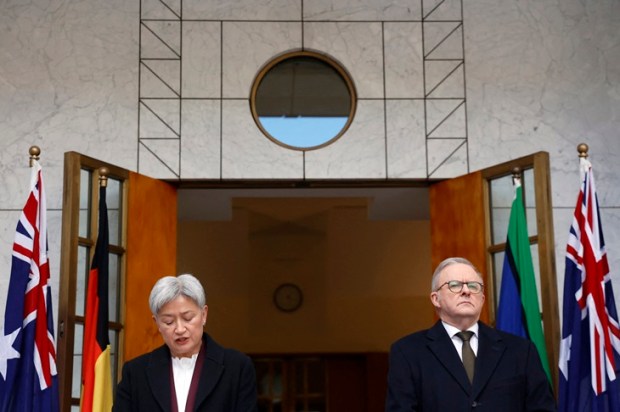The US Senate has (finally) decided to ban Chinese social media app TikTok from government devices after years of criticism that it could be used by the Chinese Communist Party (via parent company ByteDance) to collect information on military assets and politically sensitive individuals.
Legislation drafted by Republican Senator Josh Hawley passed on Wednesday with a unanimous vote. That said, there is doubt regarding whether it will be enforced.
TikTok continues to be annoyed at the ongoing suspicion levelled against it. Years of negotiations with the American government has delivered very little in the way of a compromise, made all the more difficult by the technical limitations of policing TikTok.
A statement released by TikTok read:
‘Once again, Senator Hawley has moved forward with legislation to ban TikTok on government devices, a proposal which does nothing to advance US national security interests. We hope that rather than continuing down that road, he will urge the Administration to move forward on an agreement that would actually address his concerns.’
Those security concerns expressed by the Republican Senator are not ‘nothing’.
Wired carried a story in October titled ByteDance Reportedly Planned to Access US User Location Data Through TikTok, despite a firewall existing between the parent company and US TikTok data.
‘…materials seen by Forbes indicate that an internal ByteDance review board, the “Internal Audit and Risk Control department,” planned to direct TikTok to track the location of some specific US users. The group typically focuses on internal, employee issues, but the US-based individuals were reportedly not affiliated with TikTok or ByteDance. “In at least two cases, the Internal Audit team also planned to collect TikTok data about the location of a US citizen who had never had an employment relationship with the company, the materials show. It is unclear from the materials whether data about these Americans was actually collected.’
The majority of TikTok’s billion users come from America, theoretically giving the app access to a significant number of smartphones containing people’s lives, secrets, locations, health data, and goodness knows what else. Our phones have become portable treasure troves of sensitive material that most would hesitate to leave in the care of their parent or sibling, let alone a rival communist regime. It is this ‘backdoor access’ to data that nine Republican Senators referenced in a letter to TikTok that began the ongoing process of communication with the American government.
Google and Apple wasted no time kicking off rival social media companies like Parler from their app stores and software platforms, but it appears they have no interest in restricting the world’s highest grossing social media app. By October 2022, TikTok was raking in $2.5 million a day through in-app purchases making it a darling of the advertising and corporate community.
Clearly, TikTok’s infamy has done little to damage its popularity. Millennial customers remain indifferent to the risk – possibly because they’re used to over-sharing their personal lives and are too young to understand how dangerous private information can be in the hands of a nefarious party.
TikTok is an app that perfectly suits modern society’s addiction to momentary fame, its short attention span, and bizarre devotion to wasted creativity. ‘Influencers’ are rewarded with significant amounts of money for doing little else than offer vacuous content. Meanwhile ‘trends’ routinely engage the TikTok userbase in a competition of popularity. Some of these TikTok trends have been so dangerous that adults and children have wound up dead trying to tag onto a TikTok trend.
The concern is that applications like TikTok represent the modern version of spying. There’s no need for disguises, femme fatales, and coded messages – spying can be done after the target voluntarily downloads an app onto their phone.
When it comes to security, it is not purely sensitive data that the government is worried about – it’s location services. Smart phones track their users continuously to provide ‘helpful’ location-targeted ads and offer services such as GoogleMaps. GPS and cellphone location data in the wrong hands could reveal, for instance, the presence of a secret military base, training ground, or fleet (as happened when an innocent fitness app Strava accidentally revealed spy outposts with its heatmap). As one analyst from the Institute for United Conflict Analysts said, ‘Looks very pretty … [but] not amazing for Op-Sec. US Bases are clearly identifiable and mappable.’
In June of 2021, it was revealed that TikTok was collecting ‘faceprints’ and ‘voiceprints’ from its users, leading to a Time article that reported:
‘“Generally speaking, these policy changes are very concerning,” Douglas Cuthbertson, a partner in Lieff Cabraser’s Privacy & Cybersecurity practice group, tells TIME. “The changes are vague in a lot of ways. TikTok does not explain what it will do with this biometric information, how and when it will seek consent before taking it, and what it means by ‘faceprints and voiceprints,’ which aren’t defined.”’
With Alessandro Acquisti adding: ‘Biometrics’ range of potential uses is vast: from benign, such as secure access to the app – think about how [Apple’s] iOS uses facial recognition for authentication- to chilling, such as mass re-identification and surveillance.’
TikTok also settled a federal class-action lawsuit in America for $92 million regarding ‘wrongfully collected users’ biometric data’ which it allegedly shared with third parties. According to Variety: ‘The lawsuit also alleged that the TikTok app “clandestinely vacuumed up and transferred to servers in China (and to other servers accessible from within China) vast quantities of private and personally identifiable user data and content that could be employed to identify, profile, and track the physical and digital location and activities of United States users now and in the future.”’
That said, what hope does America (or indeed, Australia) have when an entire generation is indifferent to threats of national security because it might endanger their ability to consume perverse and pointless short videos? We have sold our souls cheaply.
To that end, others have argued that the real threat posed by TikTok is ideological.
Douyin, the Chinese version of TikTok with 700 million active users, enlists algorithms to promote competition, success, and academic excellence to children. As Tristan Harris said in a 60 Minutes interview: ‘If you’re under 14 years old, they show you science experiments you can do at home, museum exhibits, patriotism videos and educational videos.’ It is content Western tweens would call ‘boring’ – they are more interested in videos featuring dangerous stunts, their peers faking serious mental illnesses for attention, or ‘educational’ videos on whatever the latest fantasy gender identity is. Twitter account LibsOfTikTok has made a career out of re-posting these TikTok videos so that the rest of the internet can stare in horror at the state of our youth – like getting nose-level with a petri dish of Bubonic Plague… Some may go so far as to say that TikTok is being used by activists to brainwash children into dangerous causes that transforms ‘entertainment’ into pure indoctrination.
There is unproven speculation, which TikTok firmly denies, that algorithms allow subversive and depraved content to go viral, pushing undesirable content into the feeds of general users. This shifts cultural gratification toward the lowest possible IQ entertainment leading to kids value idiocy over achievement.
TikTok swings much closer to the editorial line when it comes to curating content for its users. Vision of Humanity describes this perfectly:
‘It may sound like an insignificant distinction, but TikTok’s emphasis on an ‘interest graph’ instead of a ‘social graph’ took the app’s competitors completely by surprise. What’s more, it has largely gone over the heads of most lawmakers.’
This is not insignificant, with the majority users being aged under 30. Over all age groups, TikTok is present on the phones of 18 per cent of global internet users.
Some nations wised up to TikTok’s practices, with India and Pakistan initially banning the app based on ‘morality’ concerns. But which Western government is strong enough to ban an app that the majority of the youth vote (ie the ‘Green-Left’ vote) love? Labor doesn’t have the guts to upset its voters – not even in the interests of their safety or national security. Political popularity is far more important to Anthony Albanese than a pesky thing like foreign interference or potential spying.
As socialist policies invade Western democracies, driving up the price of living and crashing personal incomes, online money-making apps like TikTok will increase their market share until we end up as a parasitic society, making money off certifiable lunacy while our critical infrastructure crumbles around us.
Free speech on social media was never a threat to Western Civilisation – but digital surveillance states run by our geopolitical competitors might be…

























